“If I am not for myself, then who will be for me? And, if I am only for myself, then what am I? And if not now, when? If not me, who?”
– Hillel the Elder, In Pirkei Avot (Ethics of the Fathers)
The country is getting younger and everyone seems to wishfully want the demographic dividend to start paying off. We see more and more young achievers today and one is able to feel and sense the sociological and economic transformation that is occurring all around us. But when one scratches a little deeper and starts to observe and study what is happening more intently, we can notice that all is not as well as what one thinks. One can then see the frustrations and the emptiness that many of the young are today experiencing. Despite the individual attainments and the material comforts that surround them, there exist an unexplained restlessness that is very troubling. They seem to be suffering the consequences of the irony of having everything material but still finding themselves missing something unexplainable. A discontent that is not explainable or articulated in terms that they can currently comprehend. And in seeking to fill this emptiness, they turn to either drugs, or more transient pleasures or seek out the ‘instant’ gurus or in desperation commit suicide. It is as though, we have a generation of people who have trained themselves well cognitively but seem to be woefully inadequate when it comes to their emotional, social and spiritual competencies. We seem to have a generation of people who are unable to manage their inner conflict and tensions and unfortunately have no role models to look upto and learn from, in solving these problems. In our enthusiasm to imitate the consumerist cultures, we seem to have become experts in managing external environments and adapting our selves well to it, but have lost the ability to look inwards and learn to manage our own inner selves. Many young people I interact with, not surprisingly have no idea of what their existence means or why they are doing what they are doing – it is as though they are continuing to live with absolutely no meaning to life itself.
Imagine what such a rich talent pool could achieve if there was someway of getting them to seek a meaning for their lives, a meaning that not only gives them personal fulfillment but is also able to make them feel worthwhile and awakens their inner evolution. While looking inward may not come easily, would there be some way of using the means of looking outward to go inward? Will living for others give our lives the meaning that one is hungry for? Will the desire to make a difference in this world without seeking any personal reward or incentive drive our emptiness out? I believe that this is not only possible but is necessary. And it is here that Swami Vivekananda’s message of personal spiritual growth through selfless service finds relevance and utility.
Swami Vivekananda was not only a visionary spiritual giant but also very pragmatic when it came to matters of national reconstruction. He not only appreciated the energy and restlessness of the youth but also the problems of the toiling millions. He knew that bridging the prevailing inequity couldn’t be possible without making the ‘Self’ think of the ‘others’. He had to find the delicate balance of getting people to re-focus on matters spiritual without feeling unsettled and overawed. And he did it in the most practical manner possible. He inspired young people with a new meaning of finding themselves in the service of others. His method of personal spiritual evolution through unconditional and unselfish service to others is possibly his greatest message to mankind. He saw the ‘means’ of serving society leading on to the ‘end’ of spiritual growth of the person doing it. And he so beautifully advised us to ‘Serve God in man’. All his philosophy so elegantly and simplistically packed into one statement. In such simple and lucid language that makes it at once achievable and attractive to everyone. This ideal not only looks within the reach of each one of us but also makes it so emotionally appealing and motivating to undertake. And he simplified the pursuit of spiritual seeking into internalizing our own inner divinity and in seeing this divinity in everyone else.
Traditionally spirituality has been defined as a process of personal transformation in accordance with one’s religious ideals. The Random House Dictionary of the English Language defines ‘Spirituality’ as “the experience or expression of the sacred.” ‘Unselfishness’ is traditionally understood as the willingness to put the needs of others before one’s own. It is about giving generously and having or showing more concern for other people rather than for yourself. Combining these two powerful abstractions into a practical way of life is what Swami Vivekananda showed this world. His statement that ‘Unselfishness is more paying, only people have not the patience to practice it’ also shows that being unselfish is easier said than done. Man is wired to be centered on himself. He is biologically and psychologically tuned to ensure his own survival and this usually leads one to stay focused on issues of interest and benefit to the personal self. Today’s demanding materialistic world only amplifies these tendencies and it is indeed challenging to go beyond oneself and focus on others around us. Only when one appreciates the higher reason for one’s existence and sees the benefit of personal evolution, can the focus shift from the ‘personal’ to the unselfish ‘other’. We need to seek liberation by giving ourselves fully to the task of the welfare of others. Redefining ‘success’ from the non-materialistic perspective is also critical for ensuring this shift. Unselfish work done for others can be a very constructive and a practical way of approaching spirituality.
While the practical benefits of societal transformation is clearly evident in selfless work, there is an increasing body of literature and evidence showing how such activities also enable our own inner change. Research in the leadership sciences shows that a effective and inspirational leader is filled with compassion, mindfulness, hope, ability to create a meaning for life for himself and those around him, and Faith and self confidence. It is no co-incidence that such leaders are the ones who have also found meaning in not their personal welfare but in the service of others. The higher the degree of this unselfish attitude, the higher is their effectiveness and the ability to influence those around them. The world of neuroscience also indicates how a truly unselfish man constantly seeking to serve others has better developed pre-frontal cortex in his brain. We also need to see this in the perspective of similar evidence being reported in people who are spiritual and spend long hours in reflective and meditative practices. The coming days will surely expand this neuro-scientific interconnectedness between a life led for others and spiritual existence.
Unselfish work can also be a practical way of practicing Self-enquiry. It provides a good platform for looking and exploring outside us in our search of the missing ‘equilibrium’ in our lives. Analyzing the state of people around us, the problems that they are enduring, the endless suffering of mankind are all excellent starting points. In the pursuit of these questions is the beginning of seeking solutions and trying to become a part of the solution with no personal stake in them. The next higher step would be to gradually transcend this sense of duality of ‘self’ and ‘others’ and move on to experiencing the ‘oneness’ that Advaitic philosophy talks about. Seeing god in all beings including oneself is a good starting point to experiencing oneness and going beyond the feeling of interconnectedness. Unselfish work is a practical means of achieving the higher objective of understanding our true self; it is about going beyond the illusory limitations of our body and mind and being liberated once and for all. This is undercurrent that runs throughout the life and message of Swami Vivekananda. And this is succinctly captured in his statement of ‘Atmano Mokshartham Jagath hitayacha’.
– Balu

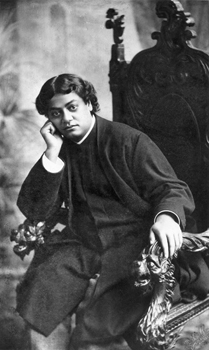
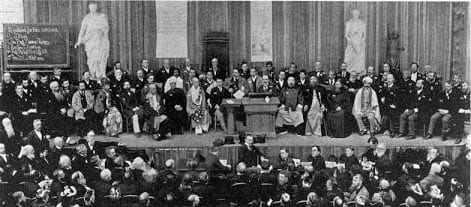
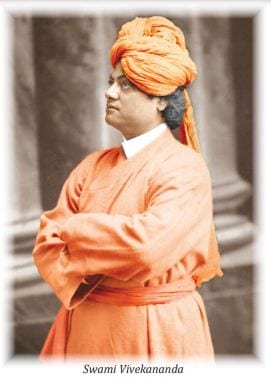
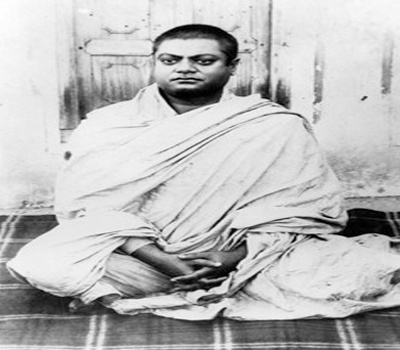

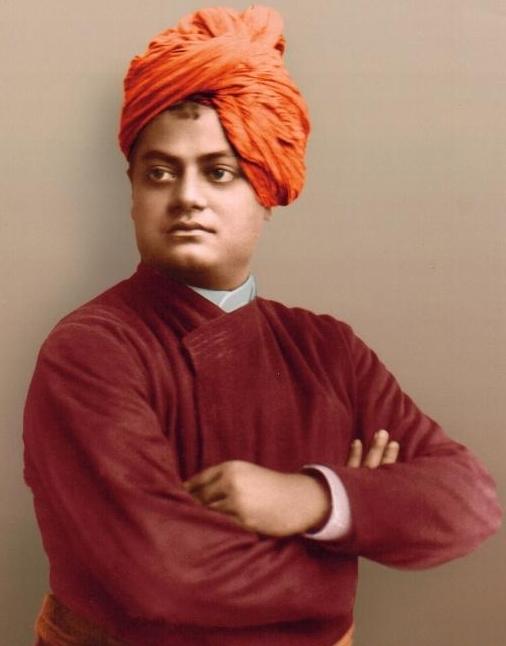
Leave A Comment